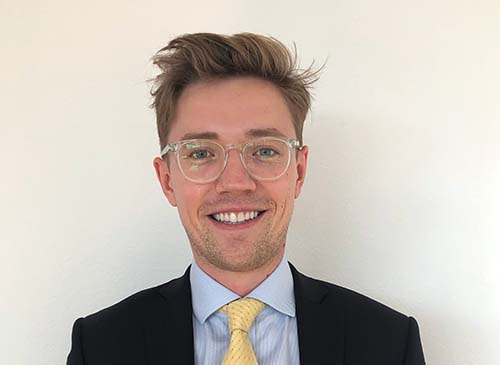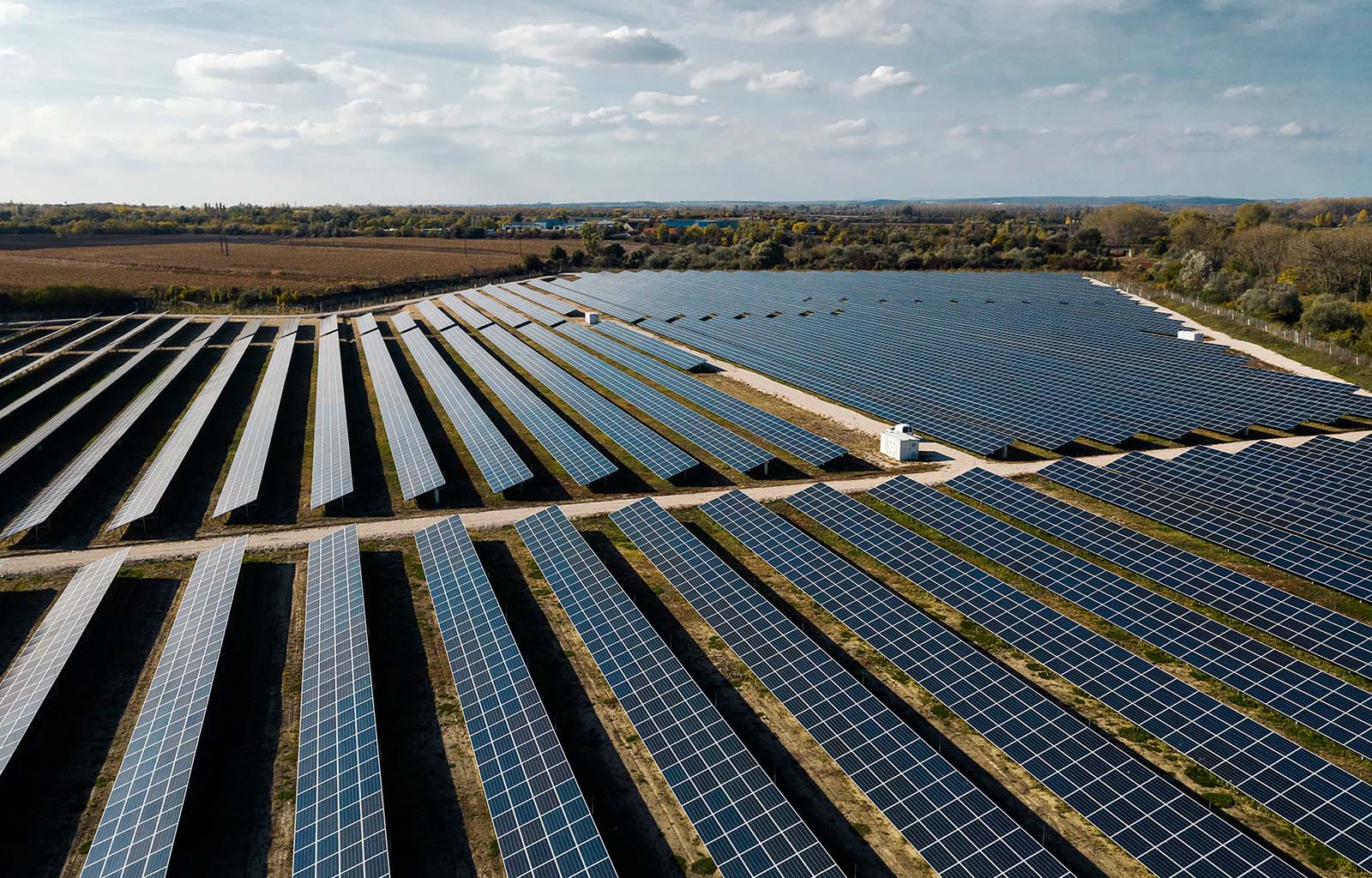
CEMS alumnus Alistair Fila is Professional Assistant to the CFO of CEMS Corporate Partner, MET Group, one of the fastest growing energy companies in Europe. A recent graduate (2020), Alistair’s career start was rocked by the arrival of the Covid-19 pandemic.

The CEMS Magazine team sat down with him to capture how he and his company responded to what they call “a global systems failure” and how a “youthful” attitude to risk was key in meeting the challenges they faced.
Alistair, you describe Covid as representing a “global systems failure.” How did that manifest for your organisation and market?
Very soon into the crisis, the gas industry was hit with fluctuating prices and depressed industrial activity. This price volatility and issues like non-payment hit a few sales markets, but overall, the company managed to withstand the impact very robustly. The crisis laid bare the value of having an integrated model, such as we have at MET Group.
There’s an inherent adaptation capability across the entire value chain, which means that when one part of that chain is squeezed, we can refocus on another part. Challenges in some of our sales portfolios were offset by high trading results and continued performance on the asset side. Overall, we were able to close in a strong position in 2020, despite the crisis. And 2021 looks healthy from a financial perspective.
What about your company culture? As a community of people, how did you respond to the crisis?
The pandemic came unexpectedly to us. Yet, certain factors allowed MET to cope well with that sudden change. We had just upgraded our IT systems before the pandemic struck and had launched Office 365 across the company. Therefore, we had already begun a learning cycle, with the organisation adapting to a new way of working. In that sense, the pandemic arrived at an opportune time for us in terms of our learning capabilities.
As soon as we had understood the scale and scope of the crisis, we launched what we called the ‘METCARE’ programme. This provided MET employees with protective equipment such as masks and gloves, as well as a range of vitamins. To help safeguard mental health and wellbeing, we also set up the METMOVES initiative, which offered a range of online fitness and yoga material. There were even online music concerts, teambuilding games like escape room and a well-organised birthday party! So, there was a strong sense of community and connection that kept us aligned and working together despite the stay-at-home restrictions.

How did this all of this unexpected change hit operations?
When Covid hit, MET was in the process of assessing entry into the German market. The way we were looking to enter Germany was via greenfield investment – creating a subsidiary on the ground, rather than going in via the merger and acquisition route. When the crisis erupted around us, we had only just opened our Frankfurt office and we were in the process of onboarding our first employees and customers. All of our plans had to be adapted and changed virtually overnight. Very quickly, we took the decision to shift our sales function 100% online and to continue online for the first key months of business.
way we were looking to enter Germany was via greenfield investment – creating a subsidiary on the ground, rather than going in via the merger and acquisition route. When the crisis erupted around us, we had only just opened our Frankfurt office and we were in the process of onboarding our first employees and customers. All of our plans had to be adapted and changed virtually overnight. Very quickly, we took the decision to shift our sales function 100% online and to continue online for the first key months of business.
Our HR division really ramped up their efforts to bring in the right management team to navigate all of this. On the other hand, the usual process of bringing in the Frankfurt subsidiary and getting everything fully integrated within the wider MET ecosystem had to be temporarily suspended. In the circumstances of Covid, we took the decision to prioritise boots on the ground and getting things up and running as fast as possible. For us the key thing was not to wait to let the crisis pass or the dust to settle. When looking back, we believe we made the right choices. Our German subsidiary not only rose to the challenge but is already performing above expectations.
What do you put this success down to?
I think there are key cultural dimensions that set an organisation up for success even when the most unexpected challenges arise. And the core part of that is adaptability. It’s about adapting your way of working, your KPIs, your business model and even your structure wherever necessary to respond to entirely new circumstances. We had the flexibility to shift to online working with our new German team and recalibrate expectations, objectives and performance measurements to accommodate the new market context. We streamlined our model to focus only on core areas and we prioritised collaboration between HQ and the subsidiary, with far more contact time than would be “normal.” At their end, the Frankfurt senior management team took the decision to meet in person at critical junctures, when they felt it necessary to do so. In sum, it’s about having the right mindset to be able to adapt when you are faced with a crisis.
What do you mean by the right mindset?
Staying positive. Resilience in the face of the unexpected comes very much from holding to the expectation that positive, good times will return again, while simultaneously being realistic about the current situation. You have to keep your feet firmly on the ground, but your eyes up and looking forward. I think another part of it is understanding and accepting that difficulties are inevitable and that things will be challenging. There’s no getting around that. At MET, we have what I’d describe as an anti-fragile organisational culture. And we have real confidence in our integrated business model. We have three business divisions: trading and wholesale, European sales and assets including renewables. In the crisis, as I said, this integrated model proved to be as resilient as it is sustainable. When one division or a subsidiary took a hit, the others were able to balance things out.
What do you think the Covid crisis has taught you as a company, and as an individual?
I think there is huge merit in sustaining a youthful attitude to risk and failure. By that I mean no disrespect to different generations. Rather, I mean it’s about maintaining a willingness to let go of past doctrines – the way you might have always done something untill now – and being open to trying something totally new or different. And that’s a mindset that anyone can learn and adopt regardless of age or experience. It’s knowing that your plans may have to change without notice and being poised to embrace failure when it happens. When you try something new or different there is always a risk of failure – and that is also an opportunity to learn.
You are a young person, at the start of your career. It’s interesting to hear you talk about keeping a “youthful attitude.” Do you believe that older cohorts have anything to learn from your generation?
We all have so much to learn from each other. Perhaps, as younger person, I’d say that our generation embodies that dynamic of constant renewal or reworking as a way of staying in touch and keeping pace with change. Part of that is also about embracing technology and seeing it as an aid rather than a hindrance to working practices.
Then I think we also value sustainability – it’s almost part of our generational DNA. As a CEMS cohort, we truly believe in sustainability as something valuable per se, and that sustainable practices can and should be woven into every industry. And that of course also includes the energy space!